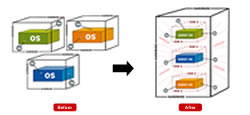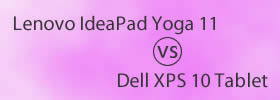Difference between Cloud Computing and Virtualization
Key difference: Cloud computing is use of computing resources over a network, such as the Internet. In, cloud computing all the applications and software are loaded on to remote machines and servers, which are owned and managed by third parties In order to use the applications and software, one can simply log onto the network and access the applications through a Web-based service that hosts all the programs. Virtualization, on the other hand, is completely different from cloud computing. As the name states, virtualization is the creation of a virtual version of something. This can include an operating system, a server, a storage device or network resources.

Cloud computing and Virtualization are two terms that have been around for decades, but have now garnered hype among the general public. These two uses of computing resources have become publicly accessible in the recent past due to advancements in computer technology. However, these two are completely different.
Cloud computing is use of computing resources over a network, such as the Internet. In, cloud computing all the applications and software are loaded on to remote machines and servers, which are owned and managed by third parties. These applications could include anything from e-mail to word processing to complex data analysis programs. In order to use the applications and software, one can simply log onto the network and access the applications through a Web-based service that hosts all the programs.
Everyone has worked with some form or another of cloud computing, be it Web-based e-mail service like Hotmail, Yahoo! Mail or Gmail, or a type of cloud storage service such as Dropbox or SkyDrive.
The advantage of a cloud computing system is that the local computers need not do much. All the work is shifted to the network of computers that make up the cloud. The local user computer only needs to be able to run is the cloud computing system's interface software, such as the Web browser and have an active connection to the network. Furthermore, the information stored on the cloud can be accessed from anywhere through the Internet.
There are many types of public cloud computing:
- Infrastructure as a service (IaaS)
- Platform as a service (PaaS)
- Software as a service (SaaS)
- Network as a service (NaaS)
- Storage as a service (STaaS)
- Security as a service (SECaaS)
- Data as a service (DaaS)
- Database as a service (DBaaS)
- Test environment as a service (TEaaS)
- Desktop virtualization
- API as a service (APIaaS)
- Backend as a service (BaaS)

Virtualization, on the other hand, is completely different from cloud computing. As the name states, virtualization is the creation of a virtual version of something. This can include an operating system, a server, a storage device or network resources.
The simplest example of virtualization is dividing a hard drive into different partitions. Hence, physically the computer has one hard drive, however virtually it has two drives that can be used separately.
In operating system virtualization, software can be used to run multiple operating system images at the same time on the same hardware. For example: creating a Windows XP environment for an old program to run on inside a Windows 7 operating system. Hence, the same computer is running two different forms of operating systems. As opposed to cloud computing, this all happens on the local computer. Whereas, in cloud computing everything in on the Internet.
Virtualization has several advantages, such as allowing applications that were designed from one operating system to run on another one. It is also cost effective, as one does not need many computers to run different software.
Image Courtesy: vyomlabs.com, clickitcaribbean.com









Add new comment